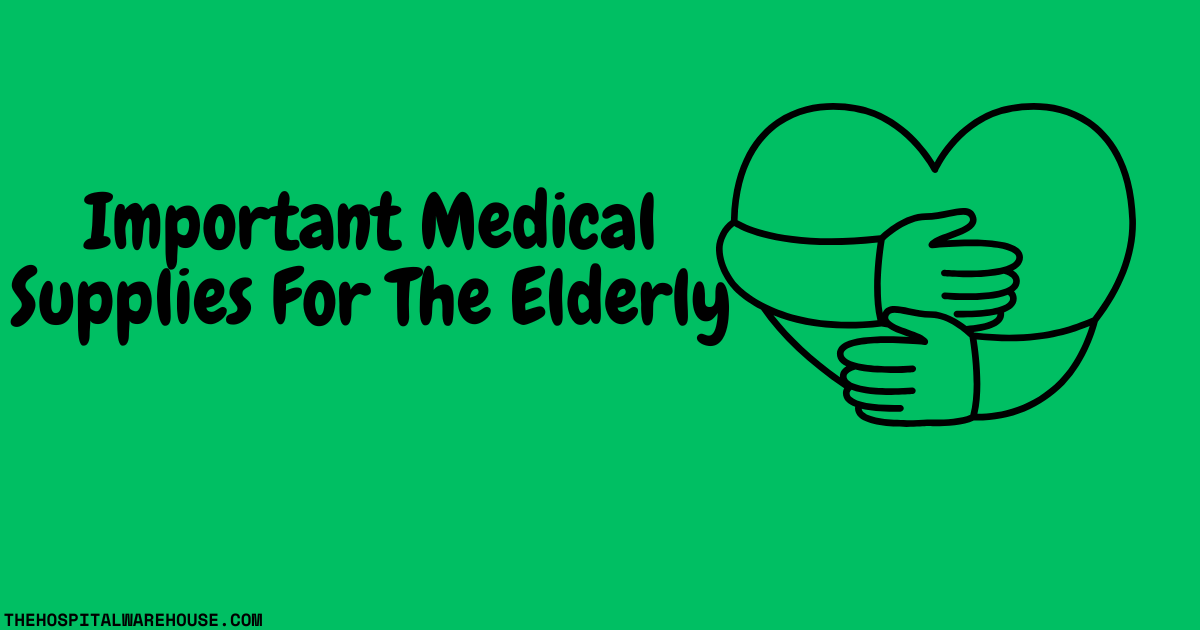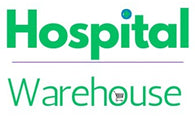
Medical Supplies for the Elderly – What Every Caregiver Should Know
Caring for elderly loved ones requires dedication, patience, and most importantly, the right medical supplies. Whether you're a family caregiver or healthcare professional, having proper equipment makes the difference between struggling through daily routines and providing comfortable, dignified care.
Aging brings unique health challenges that require specialized supplies. From mobility assistance to medication management, the right medical equipment enhances safety, preserves independence, and significantly improves quality of life. This guide will help you make informed decisions about essential medical supplies for elderly care.
Why Medical Supplies Matter in Elderly Care
Quality medical supplies serve multiple critical functions in elderly care. They enhance safety by reducing fall risks and preventing accidents while supporting independence by enabling seniors to perform daily activities with minimal assistance. These tools also prevent serious complications like infections, falls, and pressure ulcers that can quickly become life-threatening for elderly patients.
The right supplies make caregiving more manageable and less physically demanding and allow caregivers to focus on providing emotional support rather than struggling with inadequate equipment.
Essential Categories of Medical Supplies
Mobility Aids: Restoring Freedom of Movement
Mobility aids directly impact safety, independence, and quality of life. Walkers provide stable support for those with balance issues, with wheeled models suitable for steady walkers and standard frames offering maximum stability. Canes work well for mild balance concerns, while wheelchairs become essential for significant mobility challenges.
Proper fitting is crucial; walker handles should align with the user's wrist when arms hang naturally. Consider living environment factors like doorway widths and flooring when selecting mobility aids.
Hygiene and Personal Care Products
Personal hygiene becomes challenging with age, making specialized products essential for maintaining dignity. Adult diapers and incontinence pads provide discrete protection with superior absorption and odor control. Bath safety equipment, including chairs, grab bars, and non-slip mats, transforms bathrooms into secure spaces.
These products preserve dignity by enabling elderly individuals to maintain hygiene standards with minimal assistance, which significantly impacts overall psychological well-being.
Wound and Skin Care
Elderly skin requires special attention due to increased fragility and slower healing. Essential supplies include various bandage types, antiseptic solutions, and pressure relief cushions for wheelchair users. Skin barrier creams protect against moisture and friction, particularly important for those dealing with incontinence.
Small wounds that heal quickly in younger people can become serious problems for elderly patients, making prompt, proper treatment essential.
Respiratory Support Supplies
Nebulizers convert liquid medications into fine mists for conditions like asthma or COPD. Oxygen concentrators provide continuous oxygen therapy for severe respiratory conditions, while pulse oximeters monitor blood oxygen levels non-invasively.
Safety is paramount with respiratory equipment; ensure proper ventilation and electrical safety, and understand emergency procedures.
Medication Management Tools
Medication errors pose significant risks for elderly patients taking multiple prescriptions. Pill organizers provide visual confirmation of medication compliance, while automated dispensers offer audible reminders and timed dosing for complex regimens.
Proper storage in temperature-controlled, organized systems prevents dangerous mix-ups while maintaining drug effectiveness.
Monitoring and Diagnostic Devices
Regular monitoring becomes crucial for managing chronic conditions. Blood pressure monitors track cardiovascular health, glucose meters provide immediate feedback for diabetic patients, and digital thermometers offer quick, accurate temperature readings.
Modern devices are user-friendly with features like automatic record-keeping and smaller blood sample requirements.
Specialized Supplies for Bedridden or Low-Mobility Seniors
Caring for bedridden seniors requires specialized equipment. Hospital beds with adjustable positioning improve circulation, reduce pressure points, and make transfers safer. Positioning pillows maintain proper body alignment, while bedpans and urinals provide essential dignity.
Establishing turning schedules every two hours, combined with pressure-relieving mattresses, significantly reduces pressure ulcer risks.
Safety and Hygiene Tips for Caregivers
Hand hygiene remains the most important infection prevention measure—wash thoroughly before and after patient contact. Use proper glove technique when handling bodily fluids, avoiding contamination during removal.
Maintain equipment cleaning schedules following manufacturer instructions, and track expiration dates on medications and sterile supplies. Keep an adequate inventory of frequently used items.
When to Consult a Medical Professional
Seek professional input for initial equipment selection, particularly for mobility aids requiring proper fitting. Physical therapists assess mobility needs, while occupational therapists evaluate daily living requirements.
Understand contraindications and proper usage to prevent dangerous mistakes. As needs change with age or condition progression, regular reassessment ensures supplies continue meeting current requirements.
Conclusion
Effective elderly care depends on having the right medical supplies readily available. From mobility aids that preserve independence to monitoring equipment that tracks health status, these tools form the foundation of quality caregiving.
Building a comprehensive supply checklist tailored to specific needs ensures preparedness for both routine care and unexpected situations. Regular inventory reviews, proper maintenance, and safety protocols create environments where elderly individuals can age with dignity while receiving necessary support.
Remember that caregiving evolves over time. Stay flexible, seek professional guidance when needed, and invest in quality supplies that benefit everyone involved in the caregiving journey.
Looking for reliable, hospital-grade medical supplies for elderly care? Shop now at The Hospital Warehouse, your trusted source for mobility aids, hygiene essentials, monitoring equipment, and more. We're here to support caregivers with top-quality products, fast delivery, and expert service.

Leave a comment